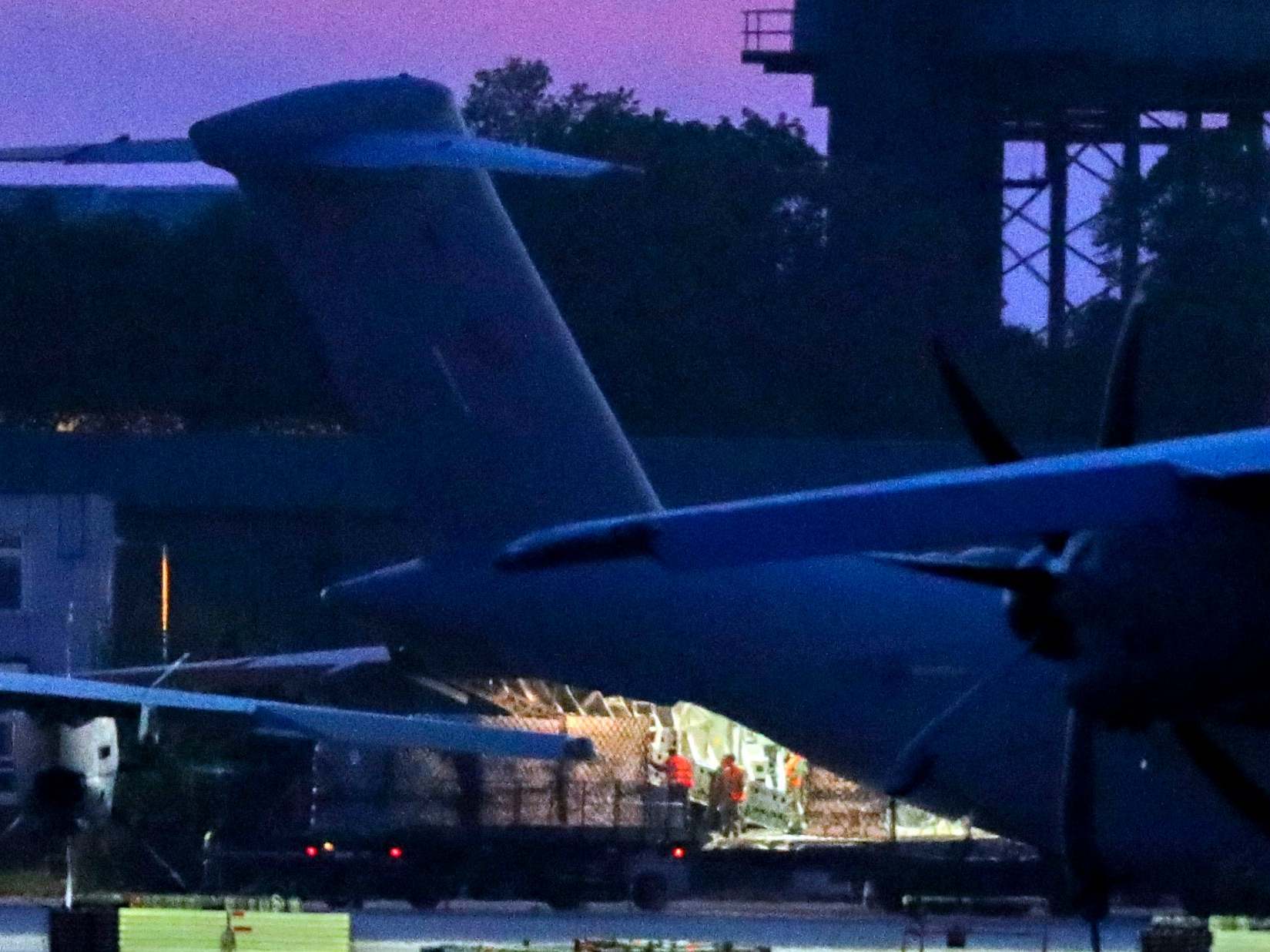A long line of British coronavirus failures
A shipment of PPE gowns that aren’t fit for purpose is indicative of the government’s approach to this crisis, says Sean O'Grady


Remember that massive consignment of personal protective equipment – gowns specifically – for the NHS, being flown in from Turkey? They’re useless.
It is a fitting, if unhelpful, end to what has become a rather emblematic farce. At the height of the PPE crisis a few weeks ago, ministers proudly announced an impressively dramatic mercy flight by the RAF, bringing this crucial kit all the way across Europe to frontline staff. Not since Priti Patel’s flight back from Nairobi to be sacked by Theresa May – when the whole nation tracked her progress live – has an airborne shipment been so eagerly awaited.
On the flight of the gowns from Turkey there was a delay, and another announcement. Then another delay. There were rumours that it had arrived, but been delayed again. Eventually it turned up – 400,000 gowns for the wards. Turns out they were “not up to the right standard”.
It is as if the entire British nation had been reduced to the status of a family in lockdown anxiously awaiting a consignment of groceries from Morrisons, with contradictory text messages sending them on an emotional rollercoaster. Then, at last, the crates arrive – but with the wrong stuff. The British government is asking for a refund of its deposit.
It is a symbolic episode partly because of its make-do, Dunkirkian, it’ll-be-alright-on-the-night, amateurish quality – the ingrained British habits of complacency and unpreparedness made real. Such things did not befall Germany in this crisis, for example, because it is simply not the German way of doing things. They plan methodically and stick to it; the British improvise and make it up as they go along. Both cultures have their strengths and weaknesses in a pandemic, so there we are. In Boris Johnson and Angela Merkel the two nations have found their perfect national leaders, the human embodiments of their respective national temperaments.
But the politics of it all are also symbolic of an underachieving British government.
One of the easiest possible things to get right in politics, as elsewhere in life, is to underpromise and overdeliver. The unique talent of the Johnson administration in the course of the coronavirus outbreak is its unerring ability to overpromise and underdeliver.
Perhaps things have been so bad, the equipment levels and planning so poor, that it became unavoidable. Because if ministers actually did promise less than they could be sure of delivering it would be so close to nothing that they’d be put to shame immediately and forced to quit. Better, maybe, to promise something impressive and hope for the best. When, as has invariably been the case, the target is missed, then the habit has been to double down and immediately distract attention with an even more ambitious target, an even bigger headline-grabbing number.
This is of course what transpired with the goal of 100,000 coronavirus tests per day, which has, with some bureaucratic contrivance, only been exceeded on one day. Its immediate replacement with a target of 200,000 a day is equally arbitrary, and blurs the point that testing is a means to an end, not an end in itself. It sounded ambitious though, and ministers like to portray themselves as ambitious, just like Eddie the Eagle or a British Eurovision entry.
Something of the same went for the ventilator shortage. Again, Matt Hancock, as health secretary, set the bar high and the Ventilator Challenge to British industry was launched. Famous names such as Dyson, Mercedes and JCB were mentioned. Prime ministerial calls were placed.
The 30,000 target was missed, and replaced by a figure of 18,000 because the lockdown pushed the hospital admissions numbers down far enough to avoid overwhelming the intensive care units. Yet the 30,000 target is still undelivered.
As of the last official update (30 April), “more than 250” new ventilators had been supplied from the Ventilator Challenge, with four designs rejected. Another 15,000 Penlon Prima ES02 ventilators are on order, with production set to – you’ve guessed it – “ramp up” in the coming weeks. Penlon is an established British maker of medical equipment.
As of 30 April the cabinet stated that: “The UK now has 10,900 mechanical invasive ventilators available to the NHS, as well as 4,300 non-invasive devices”.
If a second peak does arrive, the stock of ventilators where they are needed may still prove inadequate.
And what, by the way, ever happened to the one commodity the British enjoyed in abundance – the 750,000 NHS volunteers who answered the nation’s call? Only 250,000 were expected – a target far exceeded for once – and yet they seem to have been given little to do. Mean time, Romanians are being flown in to gather the harvest.
The report of the public inquiry into the handling of this crisis will surely make for depressing reading.
Join our commenting forum
Join thought-provoking conversations, follow other Independent readers and see their replies
Comments